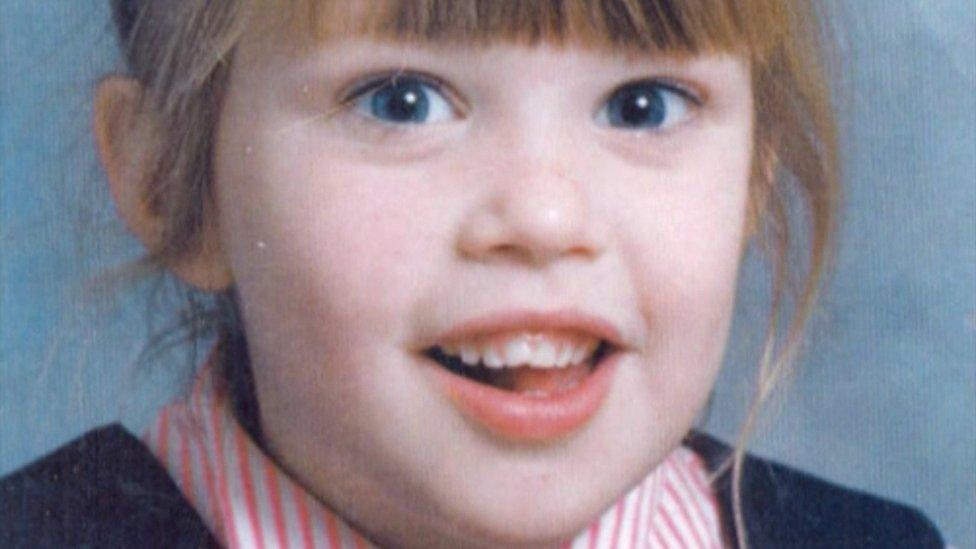Claire Roberts death: Tribunal told of 'failure' over blood tests
- Published
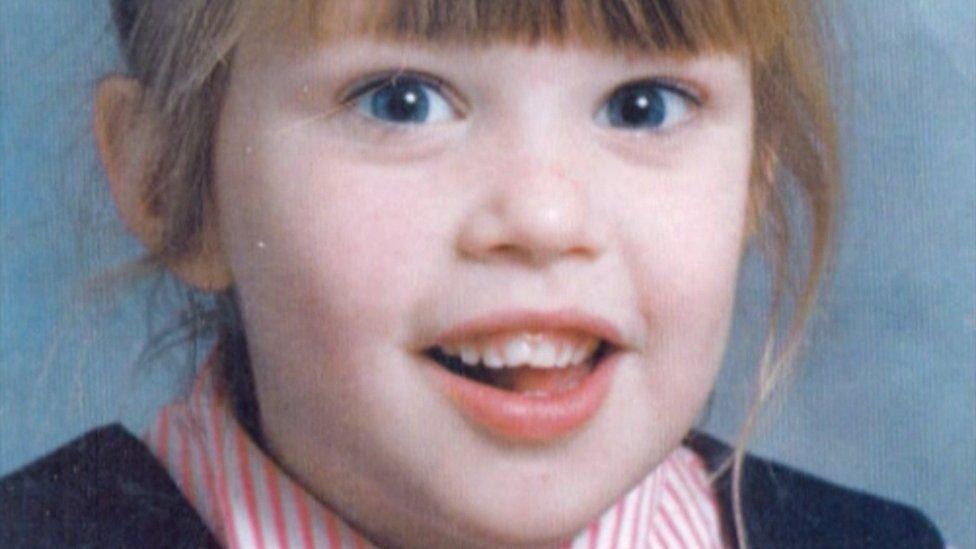
Nine-year old Claire Roberts died in Belfast's Royal Hospital for Sick Children in 1996
If doctors had tested a nine-year-old girl's blood sooner they may have changed the treatment she received before her death, an expert witness has confirmed to a medical tribunal.
The hearing was told this was a "significant failure" in the care of Claire Roberts.
Claire died at the Royal Belfast Hospital for Sick Children in 1996.
In 2018 a public inquiry concluded she died from an overdose of fluids and medication caused by negligent care.
At the time, her parents were told a viral infection had spread from her stomach to her brain.
The General Medical Council (GMC) said one of the doctors involved in Claire's care, Dr Heather Steen, acted dishonestly in trying to conceal the circumstances of her death.
Dr Steen denied allegations that she acted dishonestly and engaged in a cover-up.
She has applied twice to be voluntarily removed from the medical register but both applications were turned down.
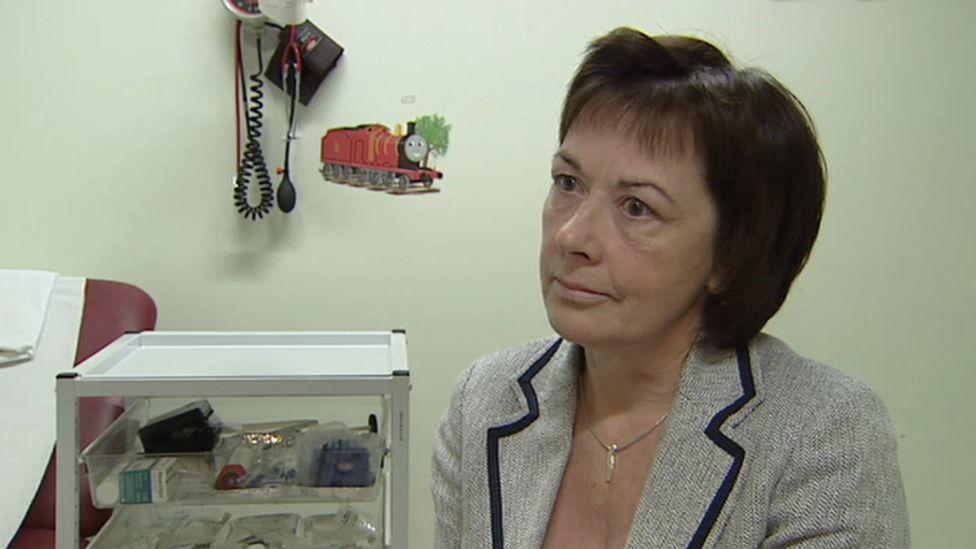
Dr Heather Steen previously applied to be removed from the medical register on health grounds
The GMC brought the case to the Medical Practitioners Tribunal Service (MPTS), which independently decides a doctor's fitness to practise.
The MPTS heard from a defence expert witness on Monday who said doctors not checking the sodium levels in Claire's blood earlier was a "significant failure" in her care.
Dr Nicholas Mann told the tribunal he would have ordered more blood tests on Claire on the morning after she was admitted to hospital but he said he did not know if this would have prevented her death.
"There should have been more attention to her fluids and electrolytes on the day after admission. Whether that would have altered the final outcome I don't know but certainly it would have been sensible to do that," he said.
The hearing heard Claire's bloods were not checked again until the evening after she was admitted to hospital. Therefore, her treatment was based on the initial test results.
Dr Mann confirmed that if new blood tests had been performed sooner it may have resulted in doctors changing the type of fluid given to Claire.
He added: "It was a significant failure but generally [at that time] electrolytes were checked on a once daily basis and, in the morning after admission, she hadn't been in for 24 hours so that's presumably why they decided to defer it or delay it for 20 hours after admission."
The tribunal also heard that Claire's death was not referred to a coroner, despite this being something all of the doctors caring for her would have had a duty to do.
It was also told that a letter sent to Claire's parents from the hospital in 2005 contained inaccuracies.
During questioning of Dr Mann, a barrister for the GMC highlighted the involvement of Dr Steen in compiling the letter which was signed by another doctor.
Tom Forster KC said it was the GMC's case that Claire's family were given incorrect information about potential causes of her death despite these not being definitively diagnosed.
He also said while Dr Steen had suspected a viral cause, a pathologist who performed an autopsy on Claire confirmed he did not find evidence of this but did not exclude it as a possibility either.
In response, Dr Mann said tests to detect viruses in the 1990s were "quite a lot more primitive" than today.
The tribunal will resume on Friday when Dr Mann is due to return for further questioning.
- Published22 July 2022
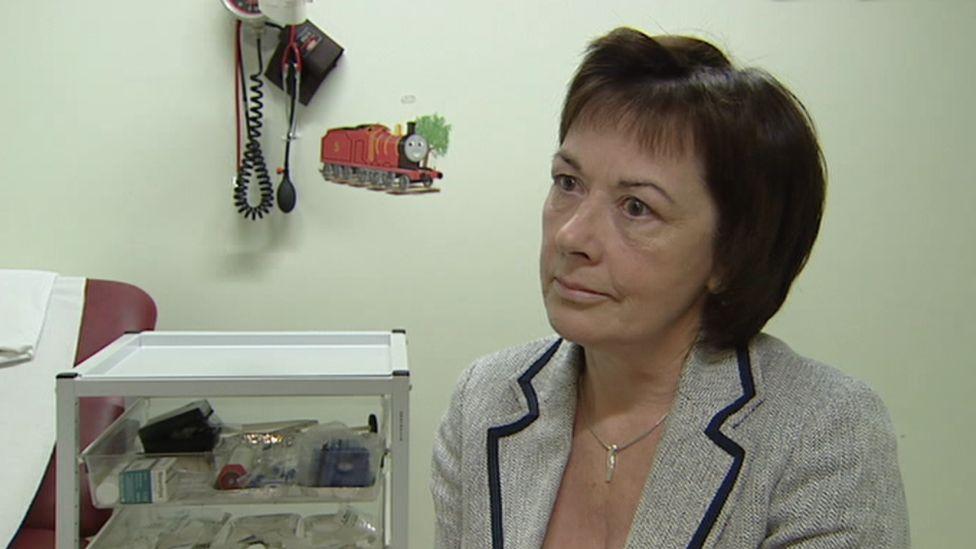
- Published29 March 2022
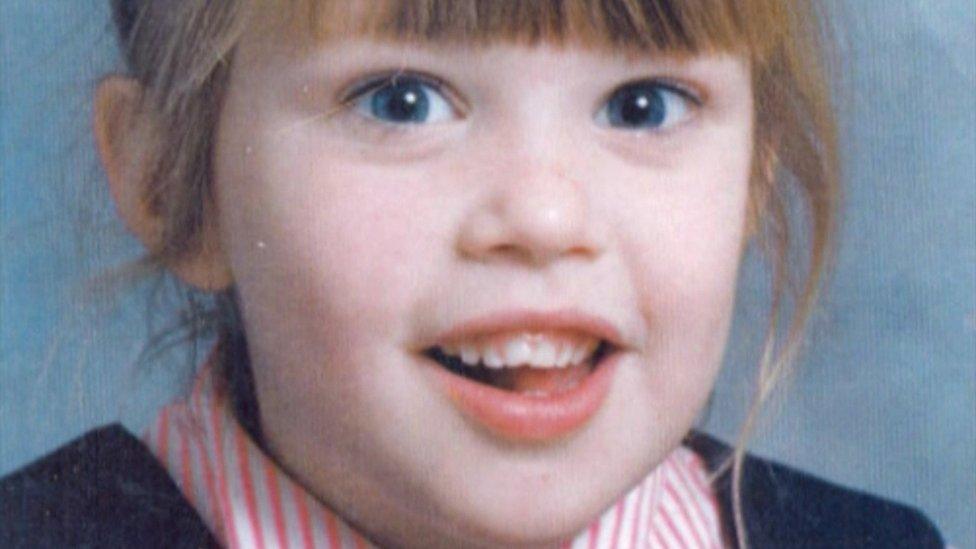
- Published21 June 2019
